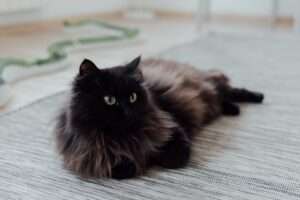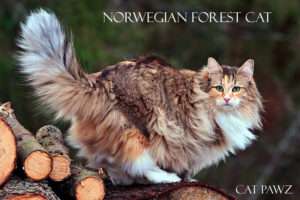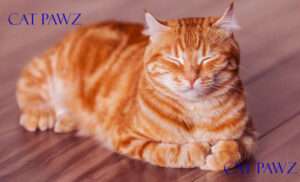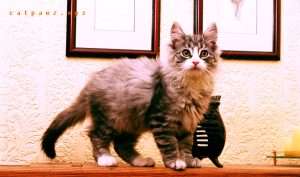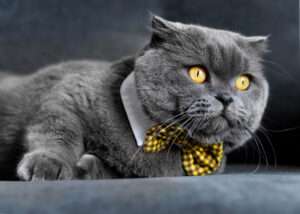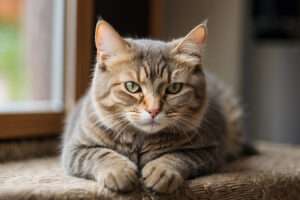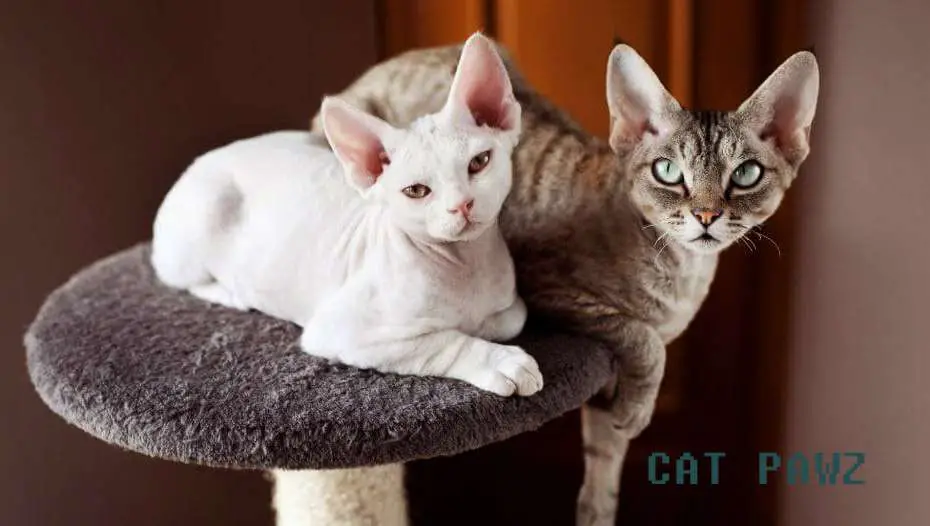
I. Introduction
The Devon Rex cats are a truly remarkable breed that possess distinctive physical characteristics and unique personality traits. Understanding their origins, comparing them to other breeds, and recognizing the various varieties they come in will help you appreciate their extraordinary qualities even more.
II. Understanding the Devon Rex Breed
Origins and Development of the Breed
The Devon Rex breed originated in the 1960s in Devon, England, when a curly-coated kitten named Kirlee was born in a litter of feral cats. This genetic mutation sparked the development of the breed, with breeders carefully selecting cats with this unique coat type. Through dedicated breeding efforts, the Devon Rex breed was established, leading to the captivating cats we know today.
Comparing Devon Rex Cats to Other Breeds
When comparing Devon Rex cats to other breeds, it’s important to note their distinctive features. Unlike the Persian or Maine Coon, the Devon Rex has a slender body structure and large ears, giving them an elf-like appearance. While the Siamese may be known for their striking blue eyes, the Devon Rex boasts expressive and captivating eyes that draw you in.
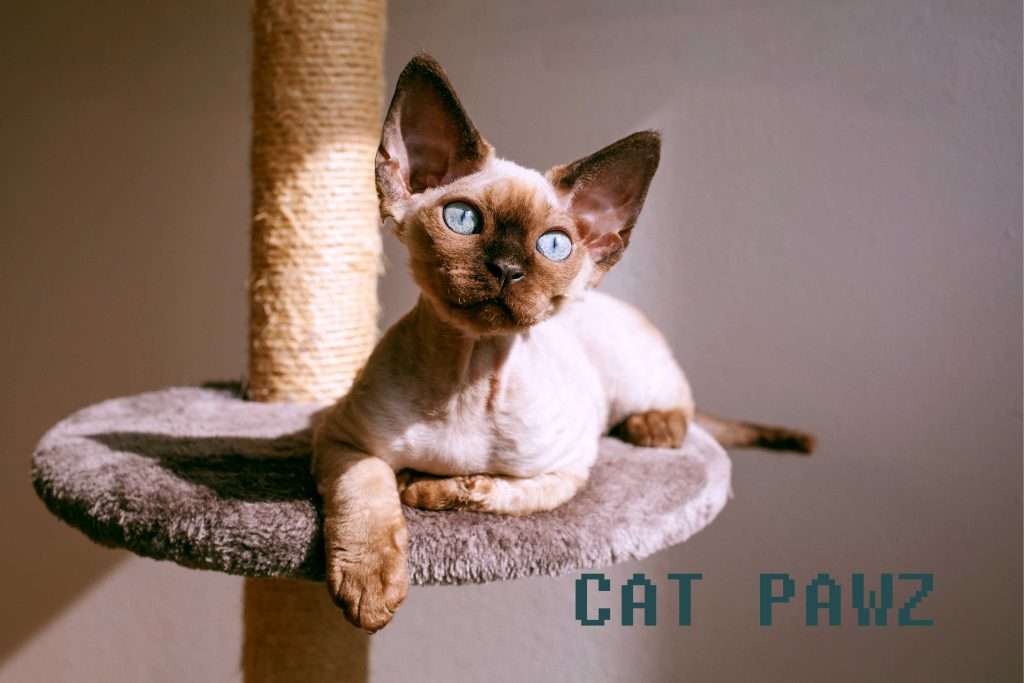
Recognizing Devon Rex Cats in Different Varieties
The Devon Rex breed comes in different varieties, each with its own unique charm. Let’s explore these variations:
A. The Devon Rex Coat Variations
- The Classic Curly Coat: This is the most common variation of the Devon Rex coat, characterized by soft, curly hair that forms loose waves or curls all over their body. It is their trademark and what sets them apart visually.
- The Straight Coat Mutation: Occasionally, a Devon Rex may have a straight coat due to a genetic mutation. While they lack the curly coat, they still retain the distinct physical features that make them unmistakably Devon Rex.
- The Rare Hairless Sphynx Trait: In rare cases, genetic mutations can cause Devon Rex cats to be born hairless, similar to the Sphynx breed. These unique hairless individuals are truly extraordinary and require special care to keep them comfortable.
B. Physical Features and Anatomy
Apart from their captivating coat variations, Devon Rex cats have distinct physical features and anatomy that make them stand out:
- Large Ears and Unique Head Shape: Devon Rex cats have notably large ears that sit low on their heads, giving them an alert and perceptive expression. Their head shape is also unique, with a slightly wedge-shaped face and prominent cheekbones.
- Agile and Slender Body Structure: With long, slender bodies, Devon Rex cats possess impressive agility and grace. They are known for their athletic abilities, often surprising their owners with their endless jumps and acrobatic moves.
- Signature Whiskers and Eyes: Another defining feature of Devon Rex cats is their long, curly whiskers that perfectly complement their curly coat. Their eyes come in various colors, ranging from green, blue, or even a combination, further enhancing their allure.
C. Temperament and Personality Traits
Devon Rex cats have a temperament and personality that matches their unique physical appearance:
- Playful and Mischievous Nature: Devon Rex’s are full of energy and thrive on playtime. They love interactive toys, climbing structures, and games that challenge their agility. Be prepared for their mischievous antics that will keep you entertained and on your toes.
- Affectionate and People-Oriented: Despite their playful nature, Devon Rex cats are also incredibly affectionate. They enjoy curling up in your lap, demanding your attention, and showering you with their love. They are known to form deep and lasting bonds with their human companions.
- Intelligence and Problem-Solving Abilities: Devon Rex’s are highly intelligent and quick learners. They enjoy mental stimulation, including puzzle toys and interactive games, which keep their minds sharp and engaged. These feline problem solvers will surprise you with their ability to figure out complex challenges.
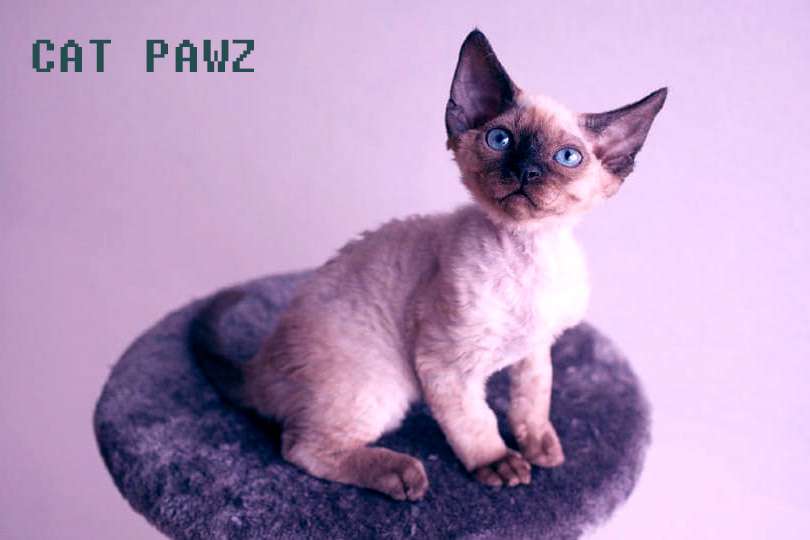
III. Caring for Your Devon Rex Cat
To ensure the well-being of your Devon Rex cat, it’s important to address their nutritional needs, provide proper grooming care, and stay vigilant about their health concerns.
A. Proper Diet and Nutritional Requirements
Nutrition plays a vital role in maintaining the health and vitality of your Devon Rex:
- Choosing the Right Food for Your Devon Rex: Opt for high-quality cat food that provides balanced nutrition. Look for options that are specifically formulated for active cats with a healthy dose of protein, vitamins, and minerals.
- Portion Control and Meal Frequency: Monitor the portion size according to your cat’s age, weight, and activity level. Also, consider dividing meals into smaller, more frequent servings to prevent overeating and maintain a healthy weight.
- Supplements and Treats for a Balanced Diet: Consult with your veterinarian to determine if any supplements or specific treats are necessary to complement your Devon Rex’s diet. Proper supplementation can aid in maintaining their coat health and overall well-being.
B. Grooming Routine for the Devon Rex Coat
Devon Rex cats have unique grooming needs due to their special coat:
- Brushing and Bathing Techniques: While their curly coat may not require extensive brushing, a soft brush can help remove loose hair and prevent matting. Additionally, occasional bathing with a gentle cat-specific shampoo will keep their coat clean and shiny.
- Managing Oil Build-up: Devon Rex cats produce more oil than other breeds, which can result in greasy fur. Wiping their coat with a moist cloth or using pet wipes can help reduce oil build-up and keep their coat fresh.
- Nail Trimming and Ear Cleaning: Regular nail trims are essential to prevent overgrowth and discomfort. Additionally, gently cleaning their ears with a cat-safe ear cleaner will help prevent any ear infections.
C. Common Health Issues and Care
Devon Rex cats, like any breed, have specific health concerns to be aware of:
- Inheritance of Genetic Diseases: Due to the breeding efforts to establish the breed, Devon Rex cats may be prone to certain genetic disorders. Regular veterinary check-ups and genetic testing can help identify and address any potential health issues.
- Allergies and Skin Sensitivities: Some Devon Rex’s may be prone to skin allergies or sensitivities. It is important to be mindful of the products used on their coat and to monitor any changes in their skin condition.
- Regular Veterinarian Check-ups and Vaccinations: To ensure their overall health, schedule routine check-ups with your veterinarian to monitor their well-being, update vaccinations, and address any concerns promptly.
IV. Creating an Enriched Environment for Your Devon Rex
Devon Rex cats thrive in environments that provide them with ample opportunities for play, mental stimulation, and a safe and cat-friendly household.
A. Engaging Activities and Exercise
Devon Rex cats have high energy levels and need outlets for their playfulness:
- Indoor Versus Outdoor Play Options: Due to their unique coat and potential vulnerabilities, Devon Rex cats are better suited to indoor environments. Therefore, ensure they have plenty of stimulating toys, scratching posts, and climbing structures to keep them entertained.
- Interactive Toys and Puzzle Games: Keep your Devon Rex mentally stimulated by introducing interactive toys or puzzle games that challenge their problem-solving abilities. Rotate their toys regularly to prevent boredom.
- Secure Climbing and Perching Areas: this cats love climbing and perching. Provide cat trees or tall shelves where they can climb, perch, and observe their surroundings comfortably.
B. Encouraging Mental Stimulation
Feed your Devon Rex’s curious mind with activities that engage their intelligence:
- Teaching Tricks and Commands: Devon Rex cats are intelligent and can learn tricks or commands similar to dogs. Use positive reinforcement techniques and treats to teach them simple tricks like “sit” or “give paw.”
- Introducing Agility Training: Devon Rex are excel in agility training. Set up an agility course with tunnels, hurdles, and ramps to challenge their physical abilities and mental acuity.
- Incorporating Environmental Enrichment: Enhance their day-to-day living by providing environmental enrichment such as puzzle feeders, window perches, and interactive toys that keep their minds active.
C. Cat-Proofing Your Home
Take necessary precautions to ensure a safe and cat-friendly environment for your Devon Rex:
- Eliminating Potential Hazards: Remove any toxic plants, secure loose cords, and ensure your home is free from potentially dangerous objects or substances that may harm your curious cat.
- Creating Safe Hideouts and Resting Areas: Devon Rex cats enjoy having cozy hideouts and comfortable resting areas. Provide them with enclosed beds or cozy cat caves where they can feel safe and secure.
- Managing Electrical Wires and Toxic Plants: Keep electrical wires hidden or covered to prevent chewing. Additionally, ensure that your home is free from toxic plants that may be harmful if ingested.
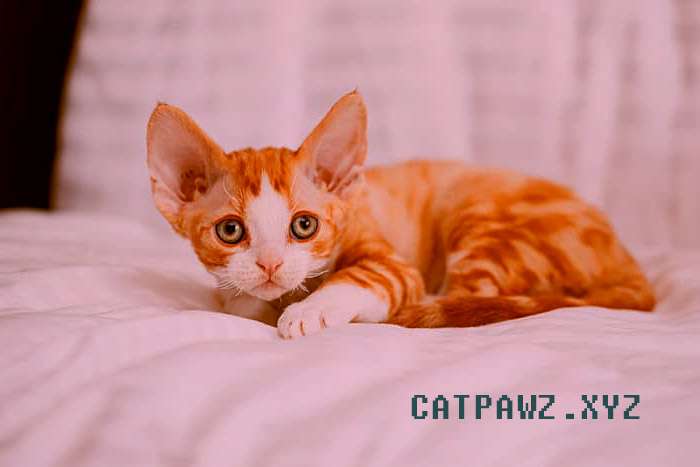
V. Frequently Asked Questions (FAQs)
- Are Devon Rex Cats Hypoallergenic?
- While no cat breed is completely hypoallergenic, Devon Rex cats produce less of the allergenic protein called Fel d 1, which may make them more tolerable for some allergy sufferers.
- How do Devon Rex Cats get along with other pets?
- The cats are generally sociable and can get along well with other pets, including other cats and dogs. Proper introductions and gradual acclimation are important for a harmonious relationship among pets.
- Can Devon Rex Cats be trained like dogs?
- Yes, this cats are intelligent and can be trained like dogs. Positive reinforcement techniques, patience, and consistency in training methods can yield impressive results.
- How often should I groom my Devon Rex?
- The grooming needs of Devon Rex cats depend on their coat type. Regular brushing and occasional bathing are usually sufficient to maintain their curly coat and keep it in good condition.
- How long do Devon Rex Cats usually live?
- On average, this cats have a lifespan of 9 to 15 years. However, with proper care, attention to health concerns, and a healthy lifestyle, they can live even longer.
Conclusion
In conclusion, Devon Rex cats are a breed that captivates with their distinctive physical characteristics and unique personality traits. By understanding their origins, comparing them to other breeds, and recognizing the various coat variations, physical features, and temperament, you can truly appreciate their remarkable qualities. Caring for your Devon Rex involves addressing their nutritional needs, providing proper grooming care, and being vigilant about their health concerns. Creating an enriched environment and understanding their preferences will ensure their well-being and happiness. Embrace the joy and unique qualities of owning a Devon Rex cat, and remember to always practice responsible adoption and care to promote the welfare of these incredible feline companions.

